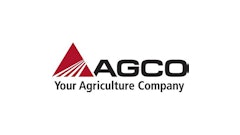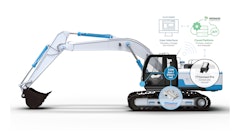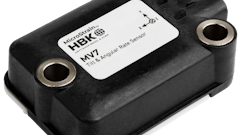One of the most difficult things about a highly publicized and scrutinized political climate is sifting through the slew of misinformation or skewed facts to serve a candidate’s position. As a service to its OEM members, the Association of Equipment Manufacturers (AEM) has made a strong effort to supply clear and unbiased information about the relationship between political positions and their implications for the manufacturing industry.
“There are a lot of issues that matter to equipment manufacturers and their employees this season,” says Dennis Slater, President of AEM. “We’ve focused on four key issues—infrastructure, trade, agriculture, and taxes and regulations. Our focus this election season has been to raise awareness of the importance of these issues and how they affect our industry for all manufacturing voters.”
Most of the activities involved in this space have been administered through the AEM grassroots effort, I Make America (www.imakeamerica.com). The association’s approach to the political topic has been emphasized on education, not any particular party alignment, so its members and their employees can feel well-informed on important manufacturing issues effecting their job and economy.
“We felt that AEM’s best role during this election year was to serve as a resource for our members and their employees, and to raise broader public awareness of our industry’s views on the issues that really matter. Our goal has been to raise the salience of manufacturing issues for as many voters as possible, so that they are taking those issues into account when deciding for whom they will vote – whoever that candidate might be,” says Slater.
Infrastructure
There can be no denying the significance of a sound transportation infrastructure, not only for the ease of the shipment of goods and resources, but also for economic growth and development. While there are countries around the world still in need of development, the U.S. is in need of repair to its degraded roads and bridges.
According to a 2012 paper published by the United States Department of State, “Better Infrastructure Brings Economic Growth,” the “[i]nvestments in modern infrastructure lay the foundations for economic development and growth. Building roads, bridges, power transmission lines and making other improvements create jobs. When completed, these projects help a society increase its wealth and its citizens’ standard of living.”
The Highway Trust Fund (HTF)—dedicated to improvements, maintenance and repairs of the country’s roads and bridges—was recently extended by 5 years through 2020, which marked the first long-term extension in several years and provided much needed industry confidence in the highway construction industry. Unfortunately, the fund’s primary revenue source is the federal gas tax which hasn’t kept pace with inflation.
Below and in future sections are brief excerpts from information gathered by AEM and I Make America which can be found in full on its website www.imakeamerica.com:
Trump has pledged to rebuild America’s infrastructure, and spend far more money on infrastructure than the United States has in recent years. Trump has not detailed how he would finance a dramatic expansion in infrastructure spending. Trump has indicated that he may redirect funding for military engagements overseas or foreign aid to domestic infrastructure spending.
Clinton proposes a five-year, $275 billion infrastructure plan, $250 billion of which would be spent directly on projects. She proposes using the remaining $25 billion to capitalize a national infrastructure bank. Clinton says this bank could use its seed money to support as much as an additional $225 billion in direct loans, loan guarantees, and other forms of credit enhancement, which she says would result in a total of $500 billion in total, federally-supported infrastructure investment.
Trade
AEM and its members strongly favor trade agreements because they represent the obstacles OEMs face in regards to exportation of agricultural and construction machinery. Because AEM and I Make America felt as though the campaign season was distorting the true relationship between trade and the strength of U.S. manufacturing, the association created a video (learn more, 12263246) to clarify the benefits of trade deals for manufacturers.
There are several trade opportunities being discussed in this election. The Trade Promotion Authority (TPA)—aggressively supported by AEM—was passed by Congress in June and expires in 2018, at which point it will be subject to renewal by Congress. The TPA, or “fast track authority” as it is commonly referred to, allows the administration to negotiate comprehensive trade deals with foreign governments, and to then send the agreement to Congress for an "up-or-down" vote, in exchange for the administration taking congressional priorities into account before finalizing an agreement.
AEM is urging lawmakers to use this window of opportunity provided by TPA to complete comprehensive trade agreements with Asian-Pacific and European trading partners.
Trump has made adamant opposition to free trade agreements such as the Trans-Pacific Partnership (TPP) and is an opponent of already-established trade agreements like NAFTA.
Clinton opposed the TPP inn its current form, however she indicated that she could support TPP if its provisions were fixed to her satisfaction, particularly on issues related to currency manipulation and labor and environmental standards.
Specifically related to the Export-Import Bank, a U.S. national export credit agency, AEM is waging a significant lobbying effort to reauthorize and reinstate it as soon as possible.
Trump opposed reauthorization of the Export-Import Bank during the Republican primary campaign, calling it “unnecessary.”
Clinton was a vocal proponent for reauthorizing the Export-Import Bank, calling it a “no-brainer.”
Taxes and Regulations
Changes and modifications to tax legislation should aim to improve U.S. economic growth and competitiveness while hopefully simplifying the tax system. When it comes to taxes related to the manufacturer members of AEM, there are several provisions that are particularly important including the corporate tax rate, bonus depreciation and Section 179 expensing, the estate tax, ag equipment depreciation, the R&D tax credit and specific provisions of the international tax code.
AEM and I Make America have stated that the federal estate tax should be fully and permanently repealed because of its harmful economic impact, particularly for small businesses.
As both candidates have very differing perspectives on what is a complex and multi-faceted topic, head online to www.imakeamerica.com to get a full account of their positions and announced plans.
“[W]e’re grateful to Congress for passing its first long-term highway bill in years, supporting the Export-Import Bank and for granting fast-track trade authority that clears the path for breaking down trade barriers that hurt manufacturers’ ability to export their products. Congress also did well to permanently extend Section 179 expensing, the Research & Development tax credit, and further support bonus depreciation rules that benefit manufacturers and their customers,” says Slater.
“The past 8 years haven’t been without setbacks. While Congress passed a highway bill, it still hasn’t developed a long-term, sustainable approach toward our infrastructure. The Trans-Pacific Partnership (TPP) is also stalled on Capitol Hill, and deserves a fair vote,” Slater continues. “Overzealous regulations like the Waters of the United States (WOTUS) rule and other unchecked regulations have been a definite negative for manufacturers that we hope the next administration and next Congress will address.”
As Election Day draws nearer, it is important for manufacturers to stay aware of each candidate’s position on the critical issues that directly and indirectly impact the manufacturing industry and how equipment manufacturers go to business both domestically and around the world. The industry is global, so while the efforts of I Make America and AEM are dedicated to awareness for its members in the U.S., it is important to remember that to participate as a global economy, one must play in the international market and recognize its foreign implications and effects.
Be sure to continue to check back with I Make America online for additional information (such as an AEM exclusive interview with Mike Schmidt, a senior economic adviser to the Clinton campaign) and continuously updated news and resources for this important election.
NOTES FOR DAVE:
Department Header: State of the Industry: Election 2016

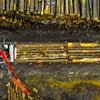

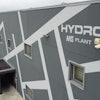
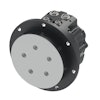
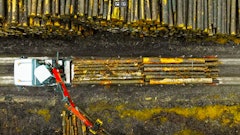
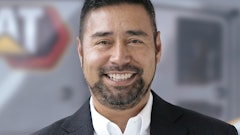
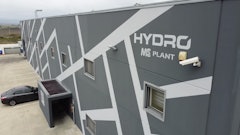
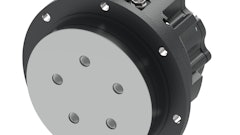
![Hcm Ax Landcros Press Release[32] jpg](https://img.oemoffhighway.com/mindful/acbm/workspaces/default/uploads/2025/11/hcmaxlandcros-press-release32jpg.mAEgsolr89.jpg?ar=16%3A9&auto=format%2Ccompress&fit=crop&h=135&q=70&w=240)



